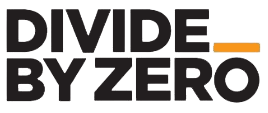The automotive industry is going through a shift in technology and such shifts always bring in new opportunities, highlights Swapnil Sansare, CEO, Divide by Zero Technologies, while in conversation with Ranjana Konatt, Editor, Industrial India
As an entrepreneur in the field of 3D printing and Additive Manufacturing, could you assess the market in which you work? Where is it headed, are we witness to rise or fall in market demand?
I believe the automotive industry is going through a shift in technology and such shifts always bring in new opportunities. Presently, there is a huge demand for 3D printing from education Industry; more or less, numbers are the same in terms of installations per month but there’s a shift in demand. With regard to 3D printing, the technology has crossed the phase of “slope of enlightenment,” and is now moving towards “the plateau of productivity,” in a typical Hype Cycle Curve.
Could you highlight the additive manufacturing technologies presently in demand within the market?
Fused Deposition Modeling (FDM), Stereolithography (SLA), Selective Laser Sintering (SLS), Direct Metal Laser Sintering (DMLS), Fused filament fabrication (FFF) are the technologies available today.
What are the upcoming opportunities where you see the potential for 3D tech?
Industrial machines, consumer products/ electronics, automotive, medical and aerospace, collectively account for about 80 percent of the market. Across these industries, the end-uses include manufacturing of functional parts, jigs, and fixtures, patterns for prototype tooling and tooling components.
Could you speak a little on the companies Laser Sintering 3D Printer which mimics the strength of moulded components…
Divide by zero technologies is one of the first companies in India to develop polymer laser sintering 3D printer. The laser sintering process is characterized by high energy densities and short interaction times, this results in very high-temperature gradients and cooling rates (>104 K/s). Therefore, the process leads to the formation of unique microstructures that essentially influence the mechanical properties of sintered plastics. This machine will be one of the first machines using indigenously developed controllers and can print materials like Nylon, PEKK, TPU and more.
Could you elaborate on the two high-speed Polymers & Resin-based 3D Printers that are faster than our present technology, the ROI it delivers and its contribution to the 3D space…
3D printing technology has been in the industry for the past 30 years and we all are fascinated by its potential, however, speed has been a drawback – until today. AION500 MK3 is a polymer 3d printer which is 3X faster than conventional CNC machines and 10X faster than a conventional FFF/ FDM machine. The printing speed is 10X more than any polymer extrusion-based platform anywhere in the world and will surely revolutionize the automotive, casting and medical industry by introducing on-demand manufacturing, casting patterns and pre-op surgical models respectively. With AION 500 Mk3 one can now print the anatomical model from CT scan of a human skull in minutes and companies need not wait for a week for their orders when they can have it in mere hours. The ROI for this machine is barely 4 months.
Powered with DBZ’s revolutionary Patented ‘AFPM’ Technology AION500 MK3 can print 10X faster than any 3D printer without losing on mechanical properties, surface finish, and accuracy. From prototyping to low-volume manufacturing, the AION500 MK3 excels at any design application and add maximum value to professional work setups. Years of research has helped the team at DBZ to develop a high-speed, high throughput 3D printing solution which is built to revolutionize the industry worldwide and overcome the barriers of speed, time and cost. It is undoubtedly a ‘Breakthrough’ in the 3D Printing Industry and has the propensity to put India on the global map for Rapid Prototyping.

